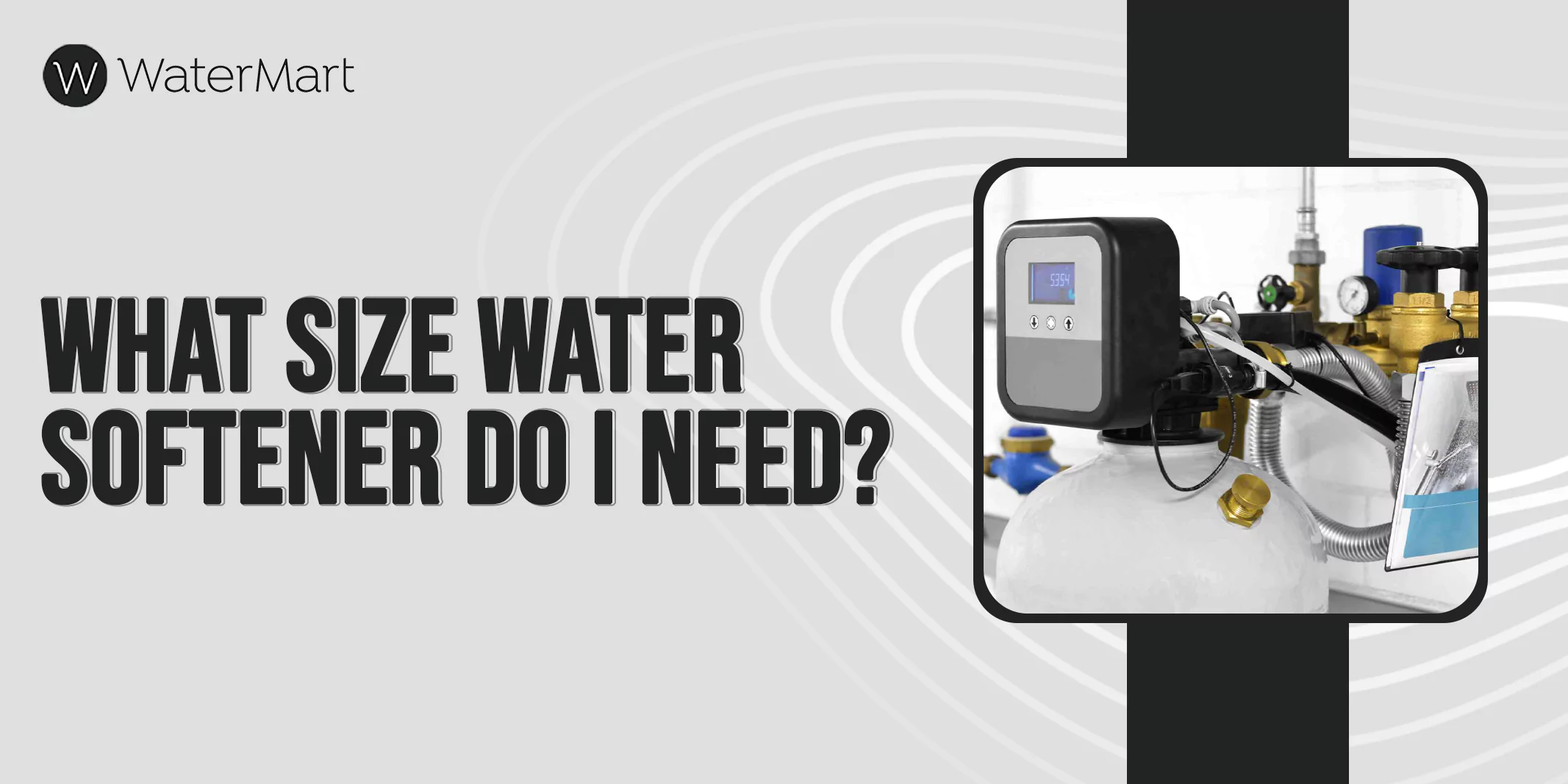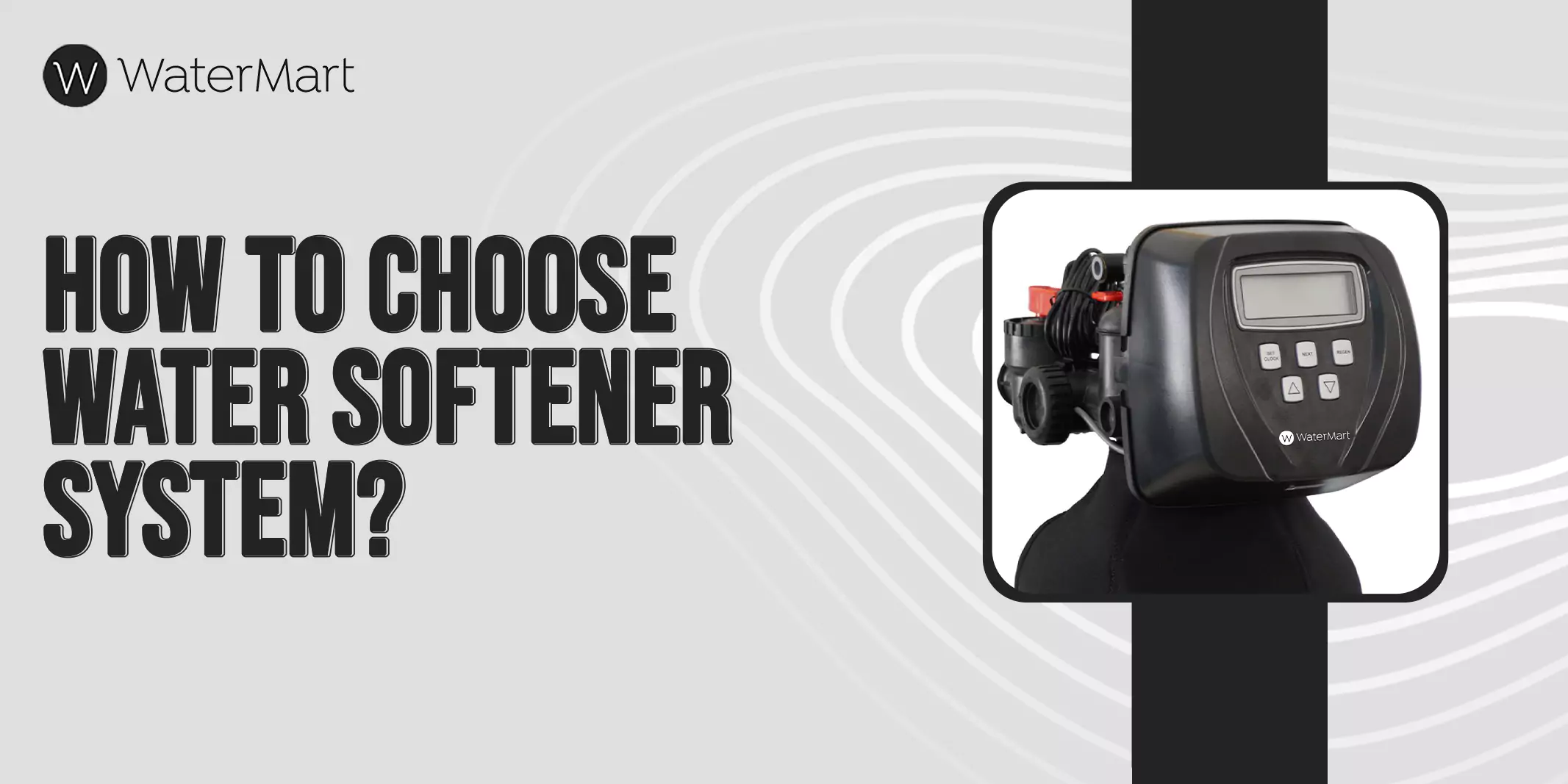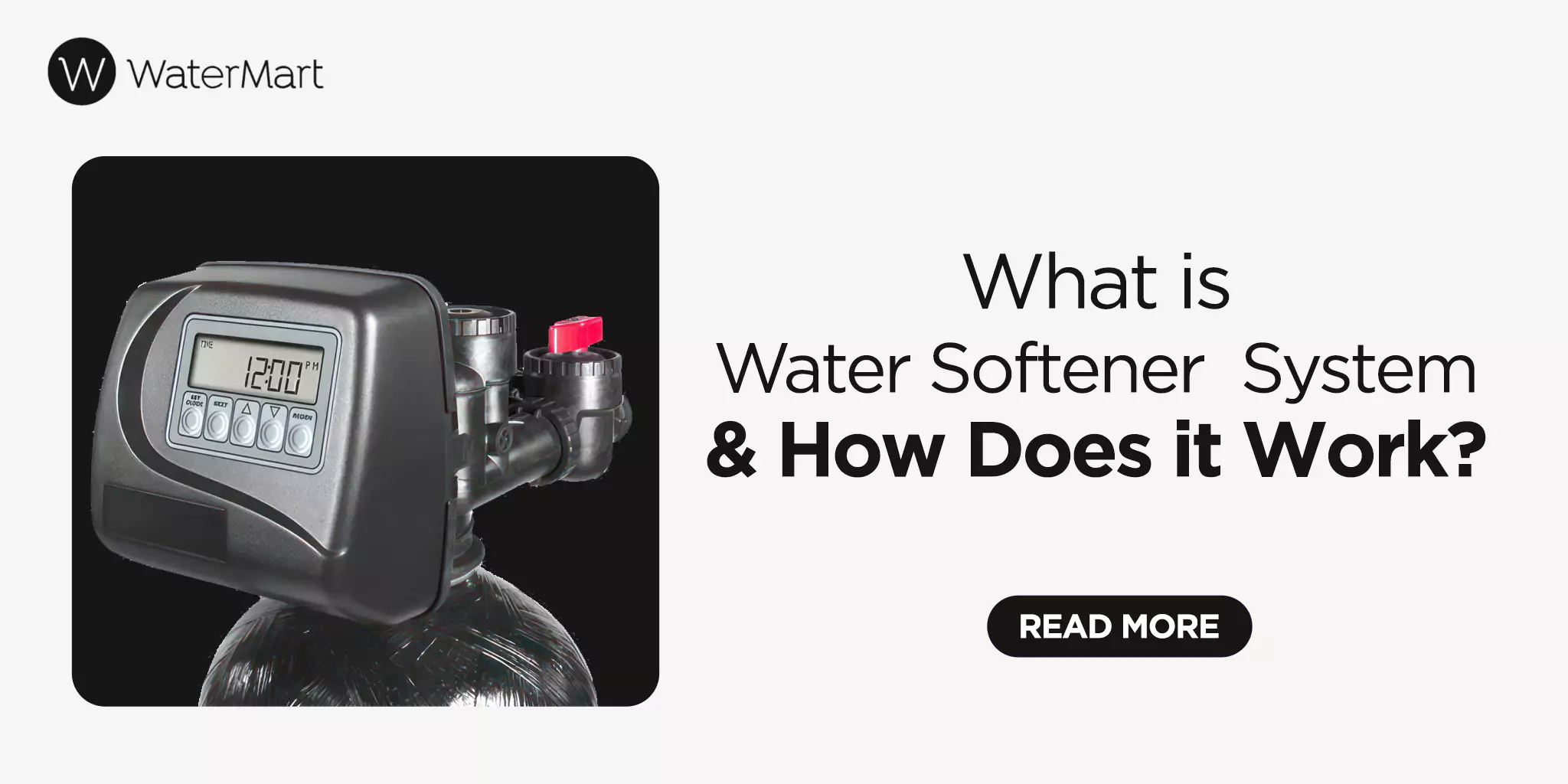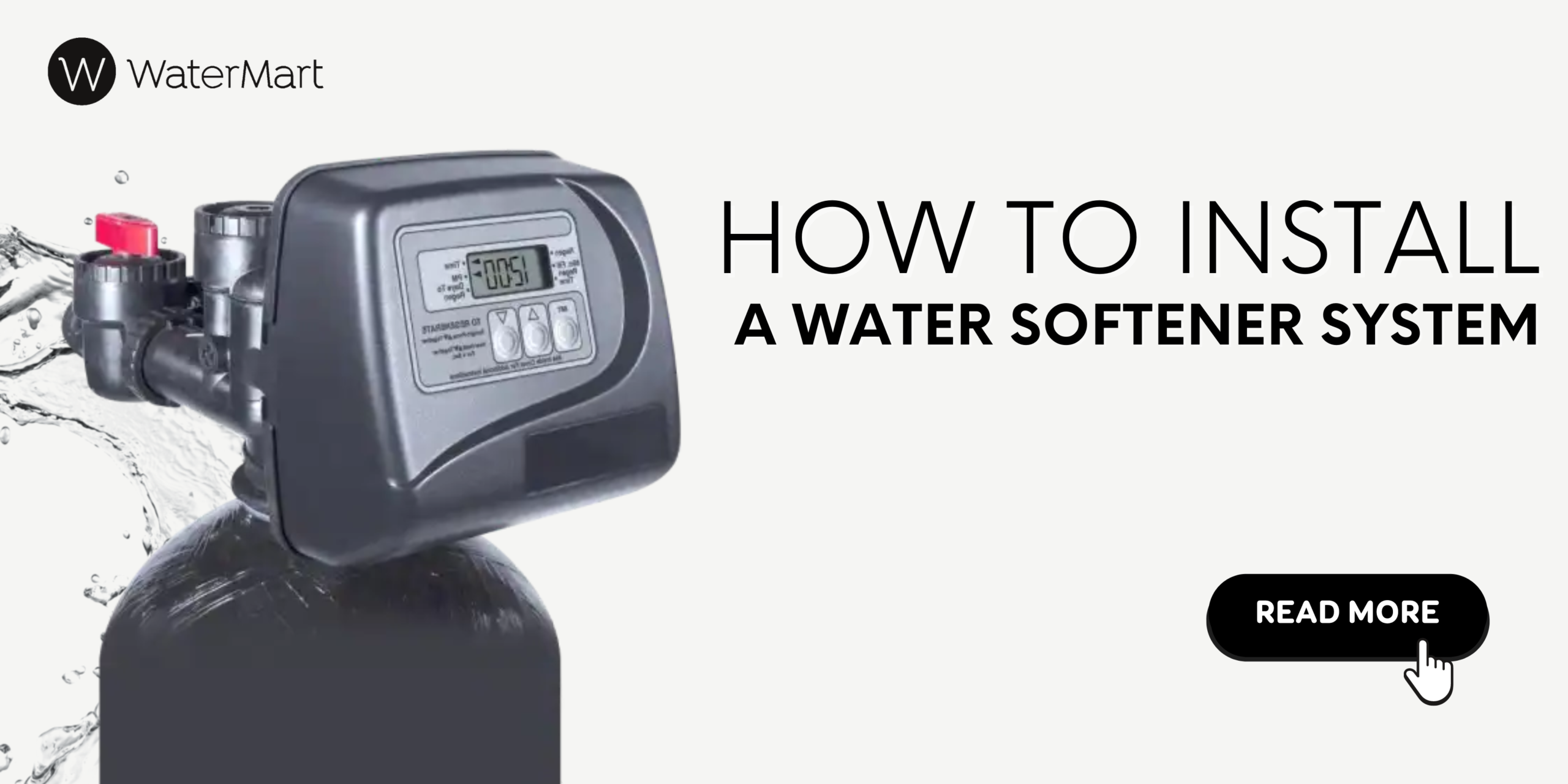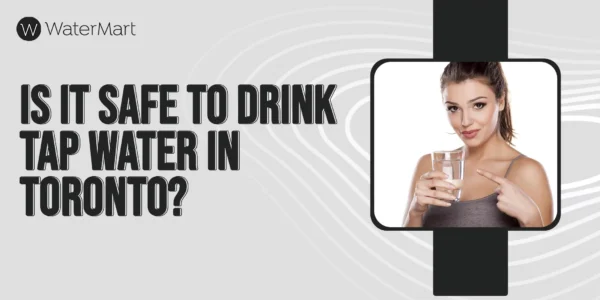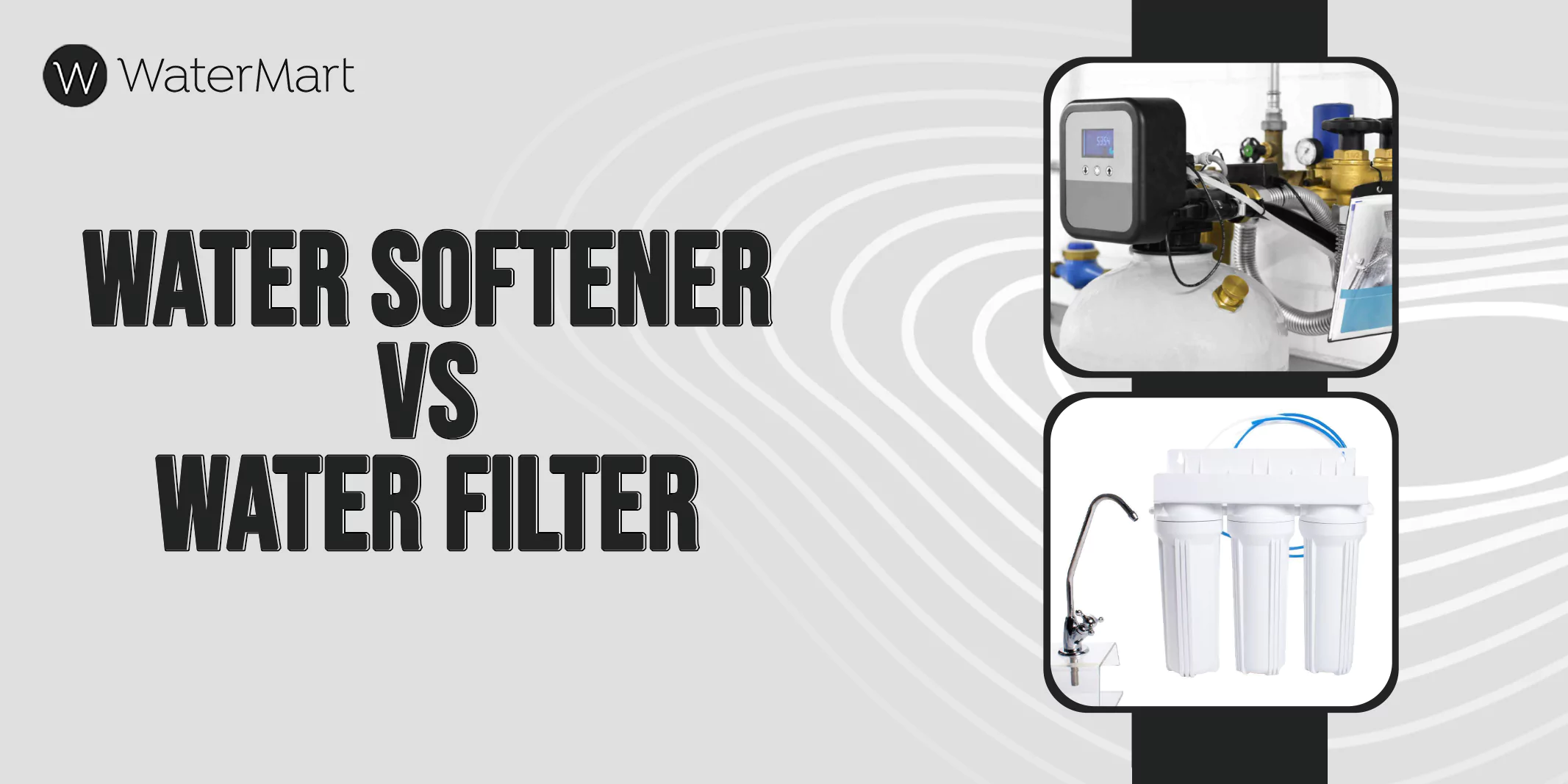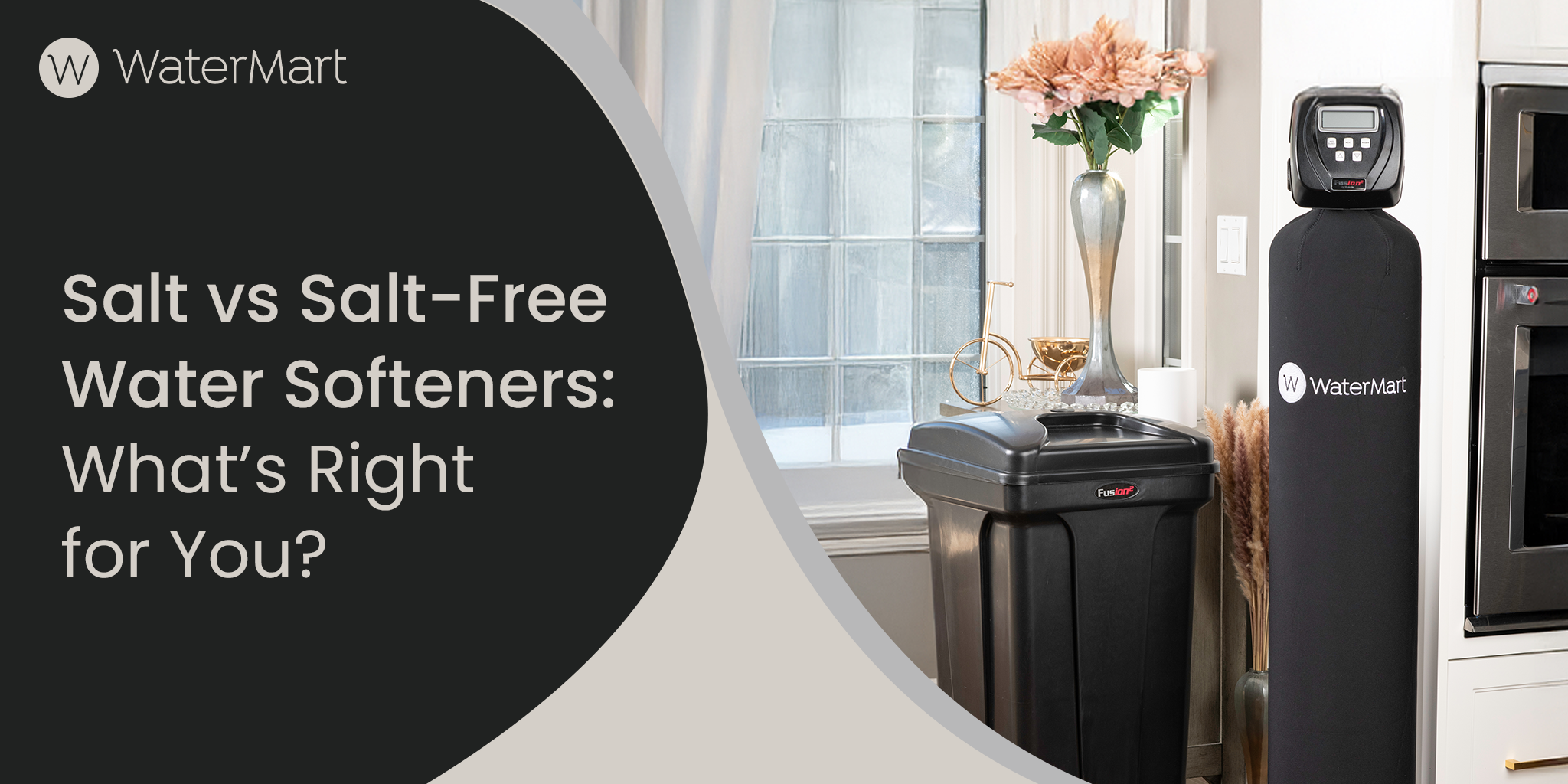Your cart is currently empty!
What Size of Water Softener Do I Need?
Soap scum, dry skin, brittle hair, and ring around the bathtubs! Does it sound familiar? Chances are, you need a water softener.
Toronto is infamous for moderately hard water with a water hardness of 117 mg/liter, causing many problems, including dry skin, scalp, and hair loss. The most viable solution to dealing with water hardness is installing softening systems of the right size.
At Water Mart, we provide tailored water softening solutions for your needs. Our advanced systems are self-cleaning and energy-efficient, engineered to reduce the levels of Magnesium and Calcium in your water tank.
But what size water softener do you need to properly soften hard water at home?
Let’s find out.
How To Properly Size a Water Softener?
Installing water softening systems is ineffective if you haven’t properly sized it. Therefore, choosing the right size is crucial for optimal performance. Here’s how to determine water softener size.
Household Size and Water Usage
The first step in measuring the size of a water softener is to determine the overall household size and water usage.
In general, an average person consumes around 60 to 70 gallons of water a day. If you multiply this figure by your household size, you get an estimate of your daily water usage. Furthermore, checking your water bill provides a more accurate estimate of overall water usage.
Determining the Hardness of Your Water
The only factor that decides how big a system you need is the water hardness level. The higher the hardness, the more advanced the system to effectively remove the minerals from your water supply.
Water hardness is measured in Grains Per Gallon (GPG). The higher GPG indicates more dissolved minerals, such as Calcium, Magnesium, lead, etc. You can find your water hardness level by accessing the annual water quality report. However, there are more reliable options to determine the water hardness.
How to Measure Your Water Hardness Level?
Besides checking out your annual water quality report, there are two other ways to measure your water hardness level.
Professional water testing for accurate measurement, which is 100% FREE, is one of the most reliable ways to measure water hardness. The results we provide are not mere figures, but also a comprehensive guide to water softening systems as per the GPG, ppm, or mg/L level for your hard water.
The other common option includes getting a home test kit from online stores or local hardware stores to check the water hardness level.
What Does Grain Capacity Mean?
Grain capacity is the unit to measure the total amount of minerals in the water. For instance, one grain is equal to 1/7000th of a pound.
Thus, a water softener should have a 32,000-grain capacity to remove 32,000 grains of hardness from the water, and so on.
Ion exchange softeners must be recharged through a regeneration cycle, especially when the resin beads in the appliance become fully saturated with hardness grains.
The regeneration process allows the resin beads to be rinsed with a salt solution to clean the softener’s bed for efficient working.
Note: You need a higher grain capacity if you have high water hardness levels.
Do All Water Softeners Use Salt?
No. Salt softeners come in two major categories. However, if you have moderately hard/hard/extremely hard water, only salt softeners would help you get rid of the mineral content.
Salt-Based Water Softeners
This is the most common and effective method to remove high mineral content from your water. Salt-based water softeners use an ion exchange method with a resin bed filled with sodium ions.
The hard water is allowed to flow through the resin bed where sodium ions take the place of the mineral content, such as Calcium and Magnesium, and sweep them out during a regeneration cycle.
Salt-Free Water Softeners (Water Conditioners)
The salt-free water softeners do not actually remove the hardness. Instead, they change the physical properties of minerals.
Salt-free water softeners are not effective for very hard water like that of Toronto. Moreover, they are low maintenance with low initial cost as compared to salt-based water conditioners.
Pro Tip: If you’re based in Toronto, Canada, or in places with very hard water, a salt-based softener is the way to go.
What are the Benefits of Using Efficient Water Softeners?
Investing in a water softener is the best investment you could ever make, especially in areas where water hardness is high.
However, some water softeners in the market do a below-average job and add to your expenses. At WaterMart Toronto brings we provide the best, most cost-effective, and energy-efficient water softening systems your home would love!
Here are a few benefits of using efficient water softeners in your home.
- Efficient salt-based water softeners use less salt during the regeneration cycle, saving you money.
- They contribute to lower water bills and reduce environmental damage by using less water during the regeneration cycles.
- Cost-effective, energy-efficient water softeners are self-cleaning and ensure hassle-free maintenance and increased peace of mind.
- Efficient water softeners use less intense regeneration processes, improving the lifespan of your appliance.
How Much Water Does Your Softener Need To Handle?
Once the water hardness levels in your area are confirmed, it’s time to make an informed decision about how much water your softener needs to handle.
Mainly, it comes down to two main points:
Water Hardness: The higher the water hardness, the more water your softener needs to handle.
Daily Water Consumption: The higher the daily consumption of water, the more water your softeners need overall.
To measure the amount of water your softener needs to handle a week, we use a simple formula:
Daily Water Usage (gallons) x Water Hardness (GPG) x 7 (days in a week) = Total Grains Required
Here’s how you calculate the perfect amount of water your softener needs to handle.
Pro Tip: Always add 25% more to the result for unexpected water usage spikes.
The Impact of Flow Rate
Accessing the flow rates in your household is also crucial before choosing the ideal water softener for your home. Usually, the number of people in a household equals the amount of water consumption.
For example, if you have two people in your home, the flow rate would be less as compared to when there are around 6 or 7 people living in a household.
Therefore, if your water softener cannot handle the flow, it would cause errors and would be inefficient in treating hardness for the entire household.
Thus, the flow also affects the amount of water your softener needs to handle.
Consequences of Improperly Sizing Your Water Softener
Imagine installing a highly efficient, cost-effective, and self-cleaning water system only to find it doesn’t work as it should. How heartbreaking!
However, the issue doesn’t even lie with your water softener but with your sizing estimates. If you’re improperly sizing your water softener, it won’t have the capacity to remove hardness from your water, resulting in scale buildup, soap, scum, and other problems.
Above all, an undersized softener requires increased maintenance services to compensate for its limited capacity. Therefore, it is important to properly size your water softener before making a final decision.
Is an Oversized Water Softener Bad?
An oversized water softener is not as problematic as an undersized one; even so, it’s not recommended.
To cater to your water hardness problems, an oversized water softener does the job well. However, it doesn’t help much as far as efficiency is concerned.
Here are a few problems associated with an oversized water softener:
- Large water softening systems use more salt per regeneration cycle, resulting in an increased cost over time.
- An oversized softener uses more water per cycle to flush out the hard minerals, contributing to a higher water bill.
Large-capacity softener units have higher initial costs. - Therefore, using a water softener of an ideal size is essential to keeping your environment and costs at bay.
If you’re unsure about the right size of water softener you need, schedule a FREE water consultation at Water Mart today.
Why Should I Buy a High-Efficiency Water Softener?
Water softening systems don’t just remove water hardness; they change your whole lifestyle, translating to cleaner dishes, softer and fresher clothes, and a longer lifespan of your appliances.
At WaterMart, we make sure you choose a high-efficiency water softener that stands the test of time and offers perks that no ordinary water softener could compete with.
Customize Your Water Softness Settings
Everyone needs a different level of water softness, and this is why water softeners from WaterMart are a game-changer!
You can easily customize your water softness settings as per your needs. Whether you like your water super soft or slightly firmer for washing dishes or doing laundry, you’ve got this!
Integrated Tracking System
The high-efficiency softeners from WaterMart feature a built-in tracking system to monitor the salt levels and notify you when it’s time to refill.
Our unique integrated system allows optimal performance without disruptions in your soft water supply.
Control From Anywhere
Manual work? Say no more!
Using the Flo Smart Water Monitor and Shutoff, you can control your softener and protect your peace of mind. This option allows you to monitor leaks and shut off your water to prevent any catastrophic damage, all from the convenience of a device!
Lower Monthly Water, Salt, And Electricity Costs
Better lifestyle at the best cost.
The water softeners from WaterMart are cost and energy-efficient. They use advanced technologies to minimize salt and water consumption during the cleaning process.
Automated Service Notifications
Stay updated about everything.
We recommend regular maintenance to keep your water softeners up and running smoothly. To save you the hassle, WaterMart offers you automated service notifications to receive routine maintenance alerts, ensuring your softeners stay top-notch for many years to come.
Household Appliances Last Longer
Hard water can be a disaster for your appliances with scale buildup and scum. To protect them, explore practical methods to soften Hard Water effectively.
At WaterMart, we make sure to remove the minerals, preventing buildup and allowing your household appliances to last longer and operate more efficiently.
Conclusion
Whether you want luxurious showers, squeaky clean dishes, sparkling bathrooms, and longer appliance life, investing in a highly efficient water softener is the answer. Water softeners offer you the complete healthy lifestyle you’ve been seeking for so long.
With amazing features and self-cleaning mechanisms, the softeners from WaterMart stay top of the list, combating the hard water of Toronto, Canada, and providing a superior water treatment experience.
We also offer other options and upgrades for your water softeners, including a Sediment filter, MediaGuard, and Flo Smart Water Monitor and Shutoff. If you’re not sure what’s suitable for your needs, schedule a call today for a FREE water consultation.
Don’t know if you have hard water? Fret not! Schedule a FREE water test now!
FAQS
How Do I Calculate Water Softener Size?
You can calculate your water softener size by determining your water hardness and daily water consumption per household. Now, as a rule of thumb, multiply your daily water usage and water hardness to calculate the grain capacity for an accurate water softener size.
What is the Ideal Size of a Water Softener for 7 People?
The ideal size of a water softener for 7 people for 5-10 GPG is 48,000 Grains.
Can I Get Small Water Softeners?
A softener that is too small is inefficient for your needs and wears down faster. Similarly, an oversized water softener will cost you more money and waste resources. Therefore, getting the right-sized water softener is essential for removing all the water hardness while being cost and energy-efficient.
Is There an Alternative to Water Softeners?
Water conditioners are the closest to water softeners where there is moderately soft water. However, in regions such as Toronto, Canada, water conditioners won’t work because of high mineral content.
How Much Maintenance do Water Softening Systems Require?
Water softeners require little to no maintenance. Just add salt to the system and schedule annual maintenance with professional service providers, and you’re good to go!
At WaterMart, we offer self-cleaning systems to ensure hassle-free maintenance, and our automated service notifications send routine alerts for maintenance.
